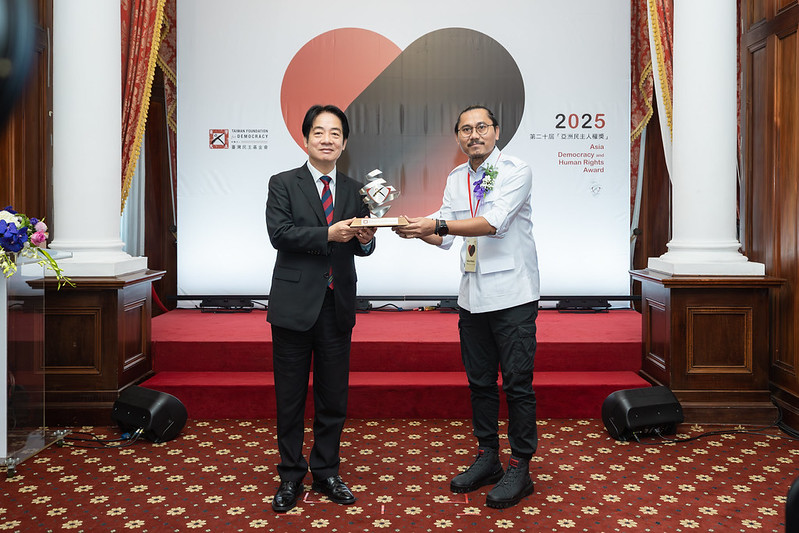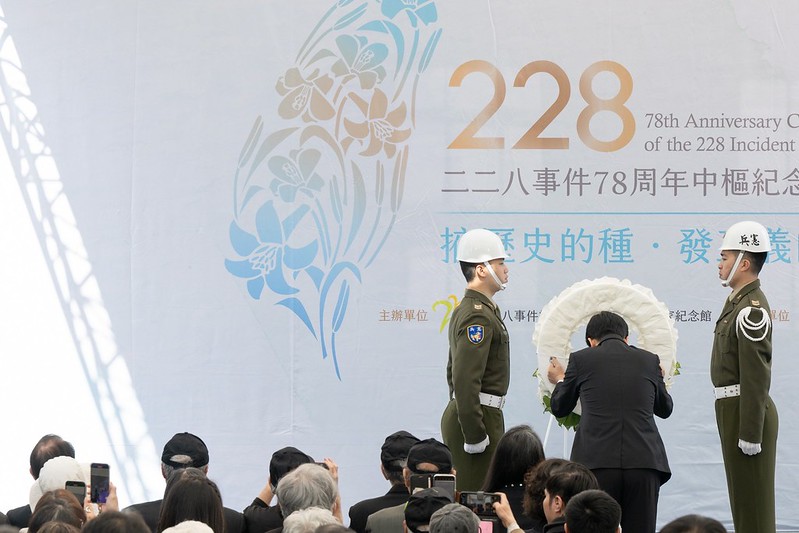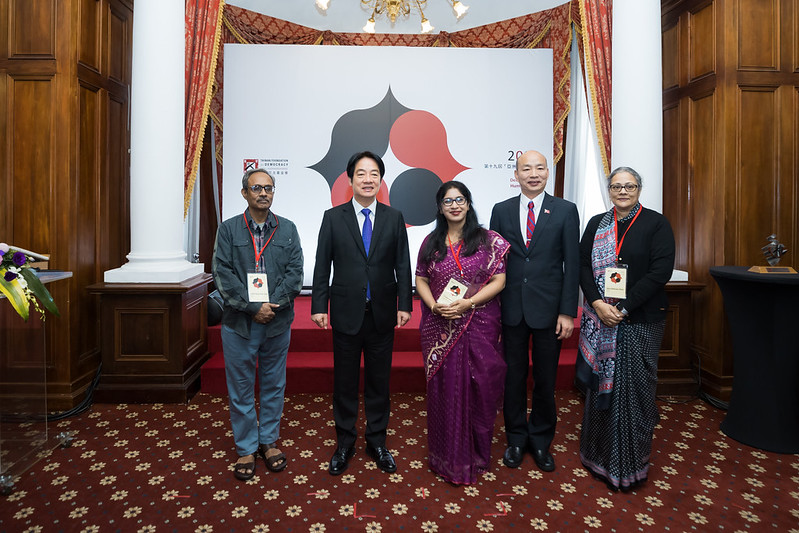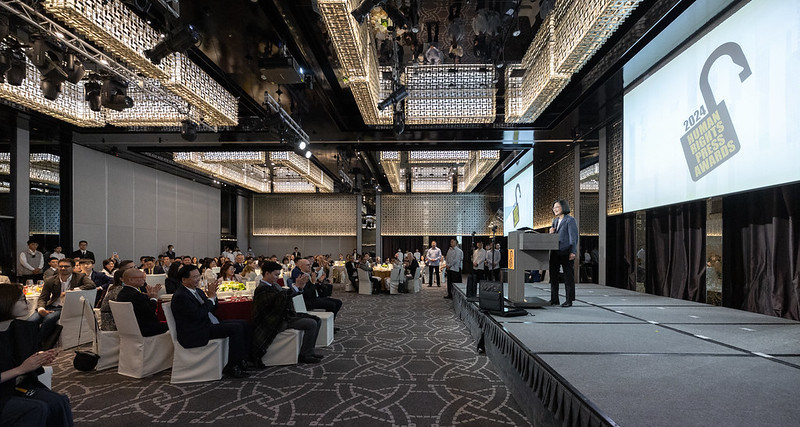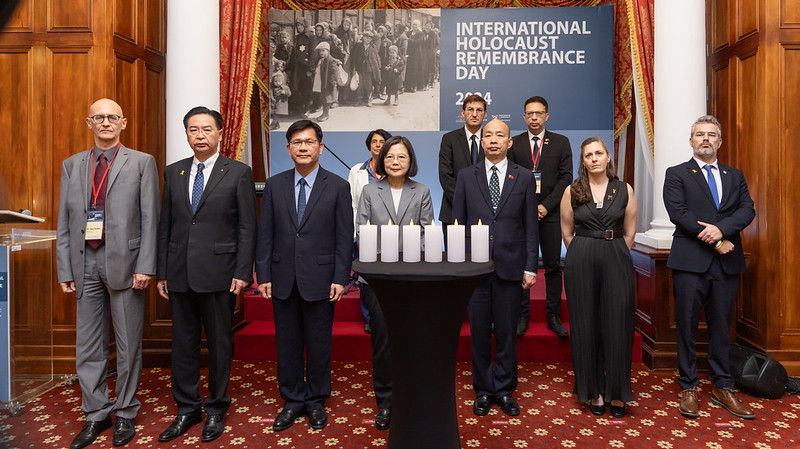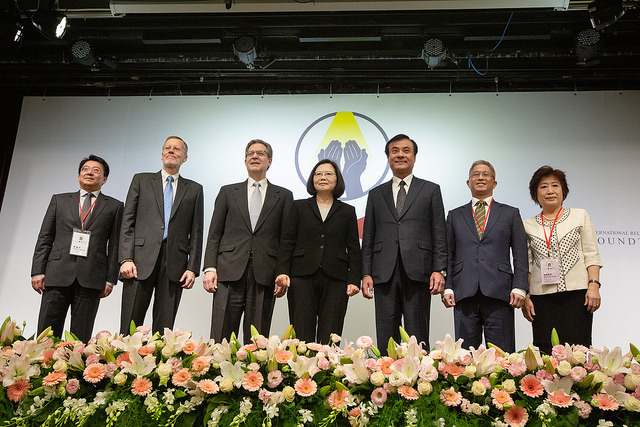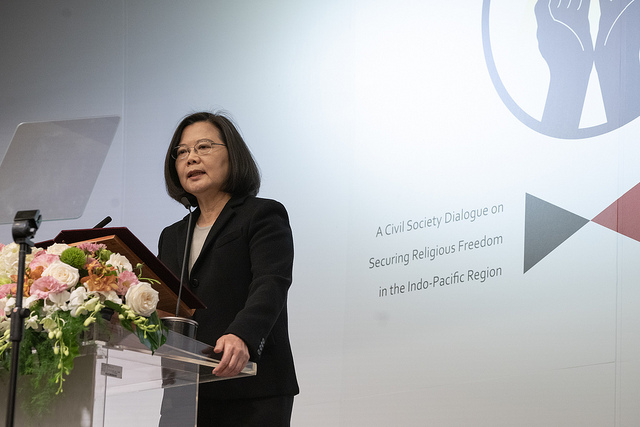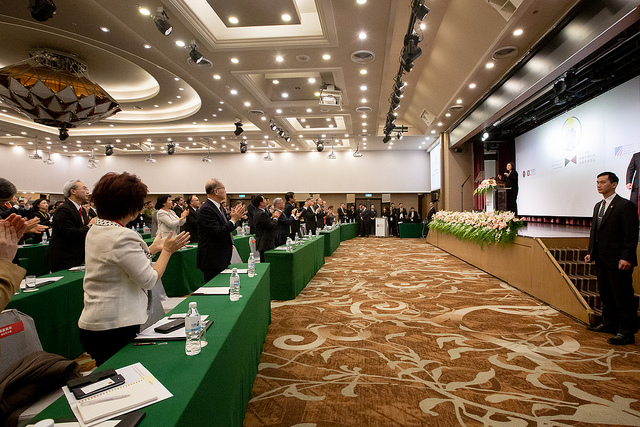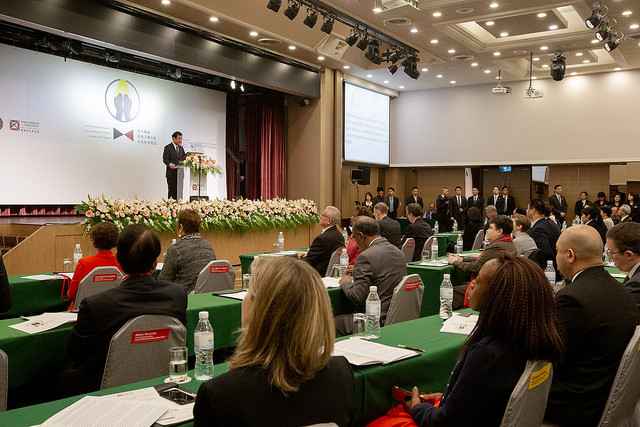News & activities
 News releases
News releases
President Tsai Ing-wen attended the opening ceremony of "A Civil Society Dialogue on Securing Religious Freedom in the Indo-Pacific Region" on the morning of March 11. She said that the state should not try to control religious organisations, and that government should create an environment of tolerance and acceptance, and a respect for minorities and diversity. The president also emphasized that Taiwan will continue to strengthen value-based partnerships with like-minded friends around the world to create a world where people are free from fear of persecution, or the fear of exile because of their religion or ethnicity.
A transcript of the president's remarks follows:
Thank you. Good morning, and welcome. It is wonderful to see all of the dignitaries, friends, and colleagues here today.
Your Excellencies;
Ambassador [Samuel] Brownback;
American Institute in Taiwan (AIT) Taipei Office Director William Brent Christensen;
Taiwan Foundation for Democracy (TFD) Chairperson Su Jia-chyuan (蘇嘉全);
Deputy Foreign Minister Hsu Szu-chien (徐斯儉);
TFD President Ford Fu-Te Liao (廖福特);
and everyone who came all the way to Taiwan, I thank you for supporting this regional religious freedom forum.
I want to offer a special welcome to our guest of honour: Senator Samuel Brownback, Ambassador-at-Large for International Religious Freedom.
As a US senator in 1998, Mr. Brownback helped push through the ground-breaking International Religious Freedom Act, which created a US Ambassador for International Religious Freedom. And twenty years later, here he is, fulfilling the role that he helped create, and rightfully so.
Since last year, Ambassador Brownback has been traveling around the world to promote respect for religious freedom by all governments and peoples. So thank you for coming to honour this important event. Your efforts also honour the memory of Thomas Jefferson, the third President of the United States, who was a strong advocate for the separation of church and state.
That means the state does not try to control religious organisations. It also means that government creates an environment of tolerance and acceptance, and a respect for minorities and diversity.
That kind of tolerance and mutual acceptance is what brings us here today.
We are not separated by our different beliefs, but bound together by this shared tolerance, and acceptance of one another's differences. So we can work together – believers and non-believers alike – to meet the challenges of the 21st century.
In Taiwan, while many people here practice one form of traditional Asian religion or another, we also have believers who practice religions that come from other parts of the world.
In fact, there is a road not far from this hotel, Xinsheng South Road (新生南路), and people call it: the road to heaven. Why? If you take a stroll there, you can find places of worship for Buddhism, Muslims, Christians, Catholics, and Mormons almost next to each other.
On Sundays, that road is full of believers of different religions. And yet they put aside labels and ideologies, and tolerate and accept each other. Freedom of religion has become central to our democratic way of life.
As an immigrant society, the people of Taiwan have learnt, and are still learning, how to accept the differences of people who travelled from different parts of the world, and arrived in different eras, including today.
Over the past two years, we have seen more and more Muslim, Catholic, and Hindu friends who moved here from South and Southeast Asia. They enrich our society with their cultures and religions, and food, of course.
And that is the promise of this country: Anyone can contribute a chapter to the story of Taiwan. So here, I want to say two words to those who came all the way to live, study, and work here: Thank you.
And yet, as we gather here today, freedom of religion is still under threat around the world.
In countries where human rights and democratic values are suppressed, governments engage in discrimination and violence against people who simply want to follow their faith.
In those countries, religious organisations are being persecuted, religious statues and icons are being destroyed, religious leaders are forced into exile, and people are held in re-education camps, and forced to break their religious taboos.
Taiwan knows how it feels when someone tries to take away your rights, wipe out your identity, and challenge your way of life.
So, we chose to stand with those who were oppressed and whose religious rights were taken away by authoritarian regimes.
That's why we have been striving to strengthen value-based partnerships with like-minded friends around the world. And we remain committed to creating a world where people are free from fear of persecution, or the fear of exile because of their religion or ethnicity. In his statement at the US Senate Foreign Relations Committee, Ambassador Brownback said: “Freedom begins on the inside.”
Whatever your religion, whatever your tradition, whatever your identity, we are gathered here today, and called to bring religious freedom to the oppressed, hope where there is despair, and light where there is darkness.
As history shows, when more people live free from fear, countries will be more stable, peaceful, and prosperous.
So, let's work together, and make this forum a beacon of true global religious freedom for our region, and the world. Thank you.
